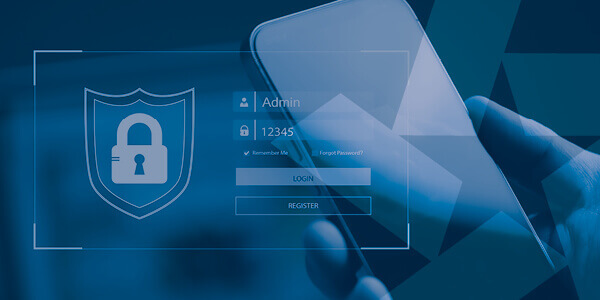Have you ever received the following message when selling something on social media:
I’ll buy it- All I need is your email address and phone number.
This message might seem harmless at first glance, but a deeper look reveals the true reason behind this message. For someone to pay you for a product, they do not need your email address and phone number.
This “buyer” is not on social media shopping for goods. They are shopping for personal information likely tied to all your accounts. With an email address and a phone number, a scammer can do a lot of damage to you. NEVER give out your personal information to anyone online.
Key Takeaways:
- NEVER give out your personal information to anyone online.
- Never hesitate to report someone. The worst that can happen is they aren’t scammers.
- If you fall victim to a social media scam, the best thing you can do is stay calm and follow these steps.
Social Media Scam Statistics
Scammers have caused a significant loss of money –$1.2 billion – through their use of social media scams. That is equal to every person in Texas opening their wallet up and throwing away $40.63.
- People 18-59 are twice as likely to fall victim to social media scams.
- 45% of all social media scams reported in 2021 were online shopping.
- Social media platforms with the most scams: Instagram (36%), Facebook (28%), WhatsApp (9%), and Telegram (7%)
- Due to increased social media use, 1.7 million children had their identity stolen in 2022.
How to Stop Social Media Fraud Before It Happens
Step 1: Identify a Scammer
Knowing the signs to look out for is the best way to stop social media fraud before it happens.
- Check grammar: Social media scammers use broken English when contacting you, like most scams. Grammar and spelling errors are major red flags. Always look for strange and unnatural language or awkward formatting. If you notice any of this, stop communicating with them immediately, block and report their account.
- The profile has few followers or friends: Most Facebook users have around 388 friends. If a profile has no personal information and only a few followers, the odds of it being a fraudulent account are high.
- Clone accounts or fake profiles: If you notice you get a friend request from someone you are already friends with, this can be a clone account. Clone accounts are created when scammers create clone profiles of real accounts. Always verify a person’s identity before accepting friend requests. Never accept requests from people you do not know.
- Never click on links: If you get a message from someone with a link, do not click on it. This is how scammers get you to engage with a fake website or download malware onto your device.
Step 2: Reporting
Never hesitate to report someone. The worst that can happen is they aren’t scammers. When you report someone, it is entirely anonymous.
- All social media platforms give you the ability to report accounts. Always report suspicious-looking accounts. Once you file a report, the platform will review the account and act from there.
- File a spam report on the scammer. If someone constantly contacts you on social media, you can file a spam report with your state or the Federal Trade Commission on the platform.
Step 3: Protecting Yourself
You are the first line of defense against social media scams.
- Don’t overshare: Most social media sites encourage sharing your personal information to “build” up your profile. Be mindful of what you put on your profile. The more personal information you share, the easier it is for scammers to steal your data from the website.
- Limit app sharing: Almost every website nowadays allows you to use Facebook to log in to your account. Try to limit this. The more you expose your account online, the more personal data you are providing to possible scammers.
- Avoid public Wi-Fi: Using public Wi-Fi puts you at risk of a scammer snooping through the information you share over the public Wi-Fi network. If you use public Wi-Fi, set up a virtual private network (VPN) to protect your information from being stolen.
- Close old accounts: If you have old social media accounts floating around on the internet, close them. Inactive social media accounts are easy for scammers to clone because low activity means people are less likely to recognize the fake account.
Related Article:

How to Stop Phishing and Smishing Before It Happens
A trust designates a third party (a trustee), to hold assets (real estate, vehicles, clothing, jewelry, and other personal belongings or title assets) on behalf of the beneficiary or beneficiaries. Trusts are arranged in many different ways and can be specific about how and when an asset passes to a beneficiary.
Read MoreWhat to Do if You are the Victim of a Social Media Scam
More than 95,000 people reported falling victim to social media scams in 2021. Being a part of this statistic is nothing to be ashamed of. Scammers are good at what they do. The best thing you can do is stay calm and follow these steps.
- Report, Report, Report: Sadly, most people do not report fraud; about 86% of fraud goes unreported. This means if 95,000 were reported as being victims of fraud, 600,000 scams went unreported. Do not be part of that statistic. When you report your fraud, you are helping yourself and protecting other people from the fraud happening to them. For more on how to report fraud, see the previous section.
- Notify friends on social media: Once you have fallen victim to a scam on social media. The scammer will likely target your friend’s list—post on Facebook about the fraud. Even link the account to bring attention to what has happened. Doing so can help warn others.
- Freeze your credit: If the scammer gets access to your personal information, contact the three credit bureaus, Equifax, Experian, and Transunion, to freeze your credit. Placing a freeze on your credit will hopefully stop the scammer before they can do more damage. If you notice they have opened accounts, contact the company to get the accounts closed. They will close the account and take it off your credit if you prove it was a fraud.
- Tell your bank: Notify your bank if you have fallen victim to a scam. See if they can do anything for you.
- Secure all your accounts: If one of your accounts has been hacked, change your passwords on all your other accounts. Keep in mind that you should never use the same password twice. Consider closing your email account and making a new one to avoid your other accounts being compromised.
Bottom Line
Scammers are always lurking and searching for ways to scam you. As the internet grows, so does the number of scammers out there. If you are going to have social media accounts, make sure to protect yourself from possible scams.
Stop and think before sharing any information with anyone, never click on links, do not buy from websites you do not recognize, and only accept friend requests from people you know in person.
For more information on protecting yourself, visit our website Security Archives – Texas Regional Bank.



